Professional athletes use their platform to address racism in America
Photo By Katelyn Newton
Rio students respond to a survey on racial protests.
After winning gold and silver in the 200 meter dash, American sprinters Tommie Smith and John Carlos walked to the podium with no shoes, revealing their plain black socks. As “The Star Spangled Banner” blasted through the Mexico City stadium, the two bowed their heads and raised their fists, covered in black gloves.
Over 50 years later, professional athletes continue to protest various injustices on the national stage. Athlete’s right to protest and use their platform to send social or political messages has been widely debated since these first demonstrations.
While the Olympic Committee and company sponsors have prohibited athletes from speaking out in the past, many professional leagues and companies have endorsed athletes who protest injustice in the wake of George Floyd’s death and the momentum of the Black Lives Matter movement.
On Sept. 1, 2016, former NFL quarterback Colin Kaepernick kneeled during the national anthem to condemn systemic racism and police brutality, and while he was originally met with criticism, a poll conducted by The Washington Post suggests that Americans now are more comfortable with athletes using their platform to express their views on national issues than in the past.
Results from the Post’s poll show that 62 percent of Americans now say that it is acceptable for professional athletes to use their platform to express their views on national issues, including over eight in 10 Black Americans and seven in 10 adults under age 50.
Comparable to the Washington Post poll, a school survey shows that nearly 63 percent of Rio students agree that it’s appropriate for athletes to speak out on national issues via social media.
“It’s very appropriate for pro athletes to speak on social media,” said senior Jalen Naran. “It’s just their opinions and they should be able to choose whether or not they share them.”
While most athletes are using their social media platforms to speak out against racial injustice, entire teams have taken to kneeling or remaining inside their respective locker rooms during the national anthem as further means of protest.
During the first week of the NFL season, seven teams remained off the field for the playing of the “Star-Spangled Banner.” Players on other teams chose to come out of the locker rooms, but kneel during the playing of the national anthem in protest.
Though a large majority of Americans approve athletes speaking out against social injustice, kneeling is still highly controversial amongst citizens. Some, including the President, see kneeling as a form of disrespect against the American flag and soldiers, rather than a form of protesting injustice.
“Athletes and celebrities have the right to express their stance on social issues, but the moment you kneel, you are disrespecting the American troops overseas and everything America has accomplished,” said an anonymous student.
The Washington Post survey found that 54 percent of Americans support kneeling, while 61.7 percent of Rio students say kneeling during the national anthem is an appropriate form of protest.
Those in support of such protests during the national anthem, feel that it is the athlete’s right to use their platform to bring attention to injustice.
The NBA and the players’ union agreed upon a series of phrases related to social justice that the players could choose to put on the back of their jerseys in place of their name, in addition to printing “Black Lives Matter” on the courts.
Sophomore Olivia Schlieman supports such action, but suggests that athletes should be aware of the other 40 percent, who may not support them.
“I think that pro-athletes should have the opportunity to express their opinions through their actions during the national anthem if they are able to take the criticism that comes along with it and they are passionate about their beliefs,” Schlieman said.
Despite varying opinions on the issues, more professional sports leagues are endorsing athletes’ right to protest, particularly following the call to address racism in America over the past few months.
Click here to see the results of the survey of Rio Americano students.








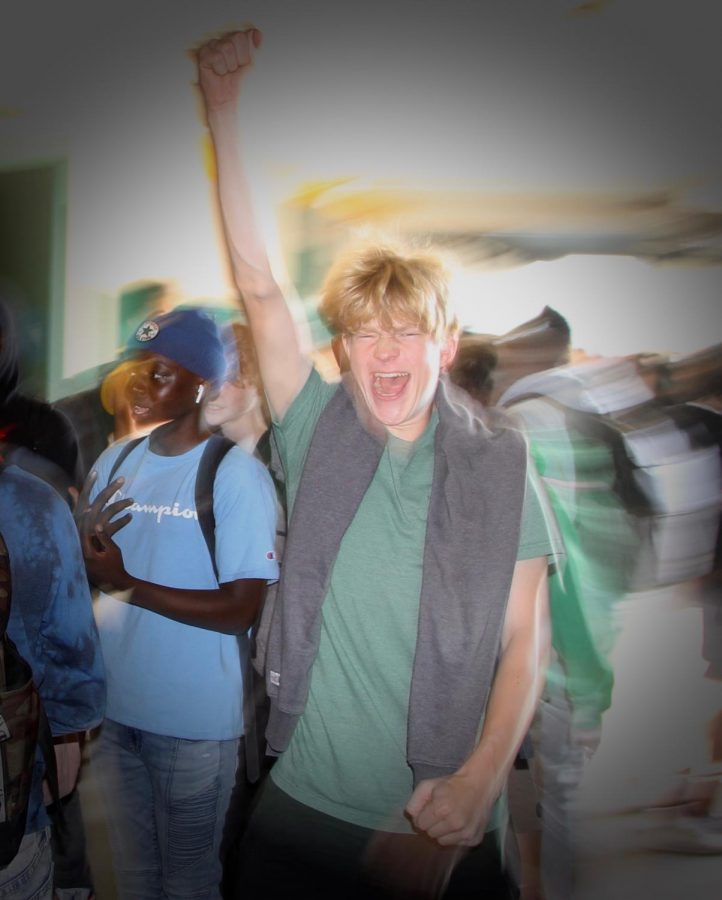






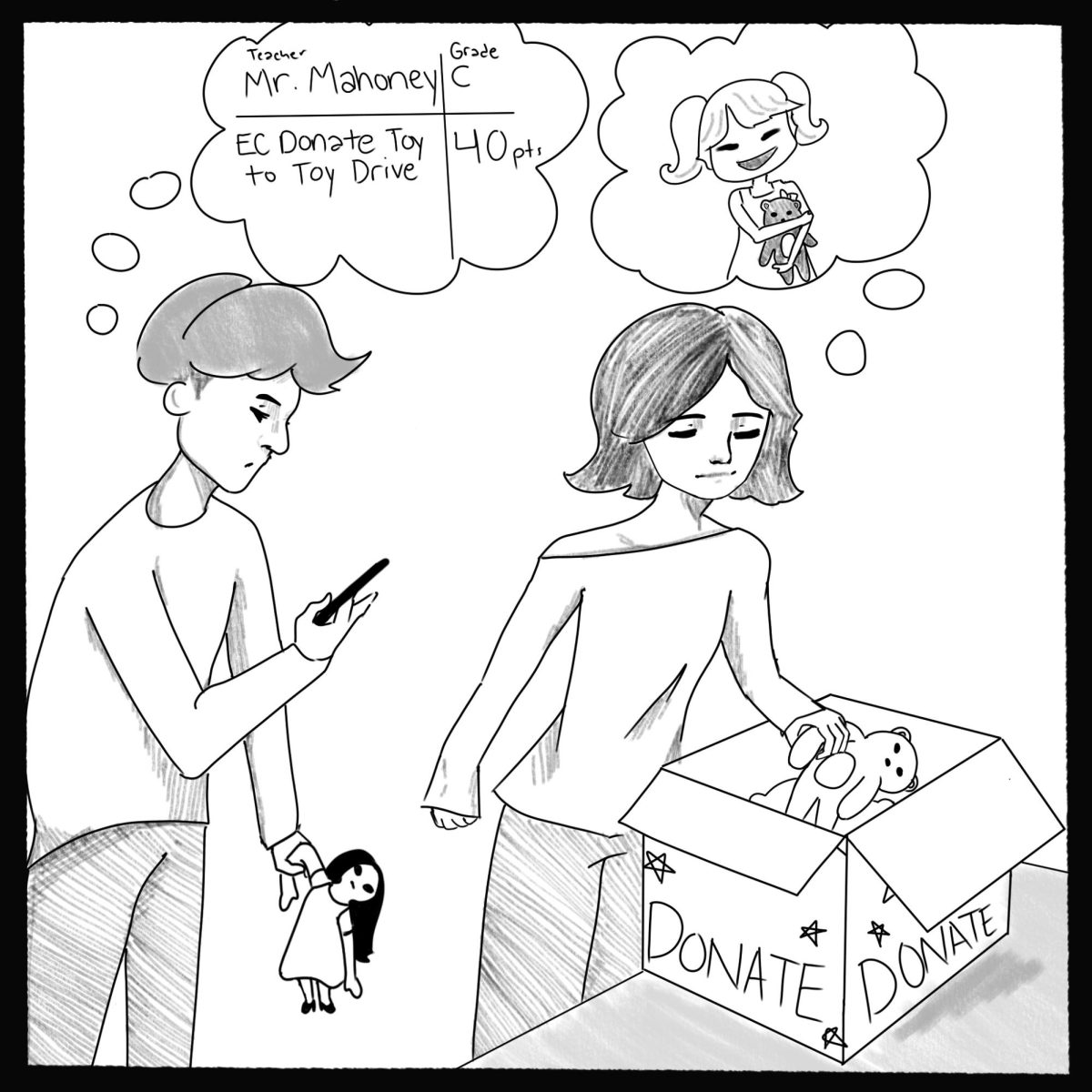

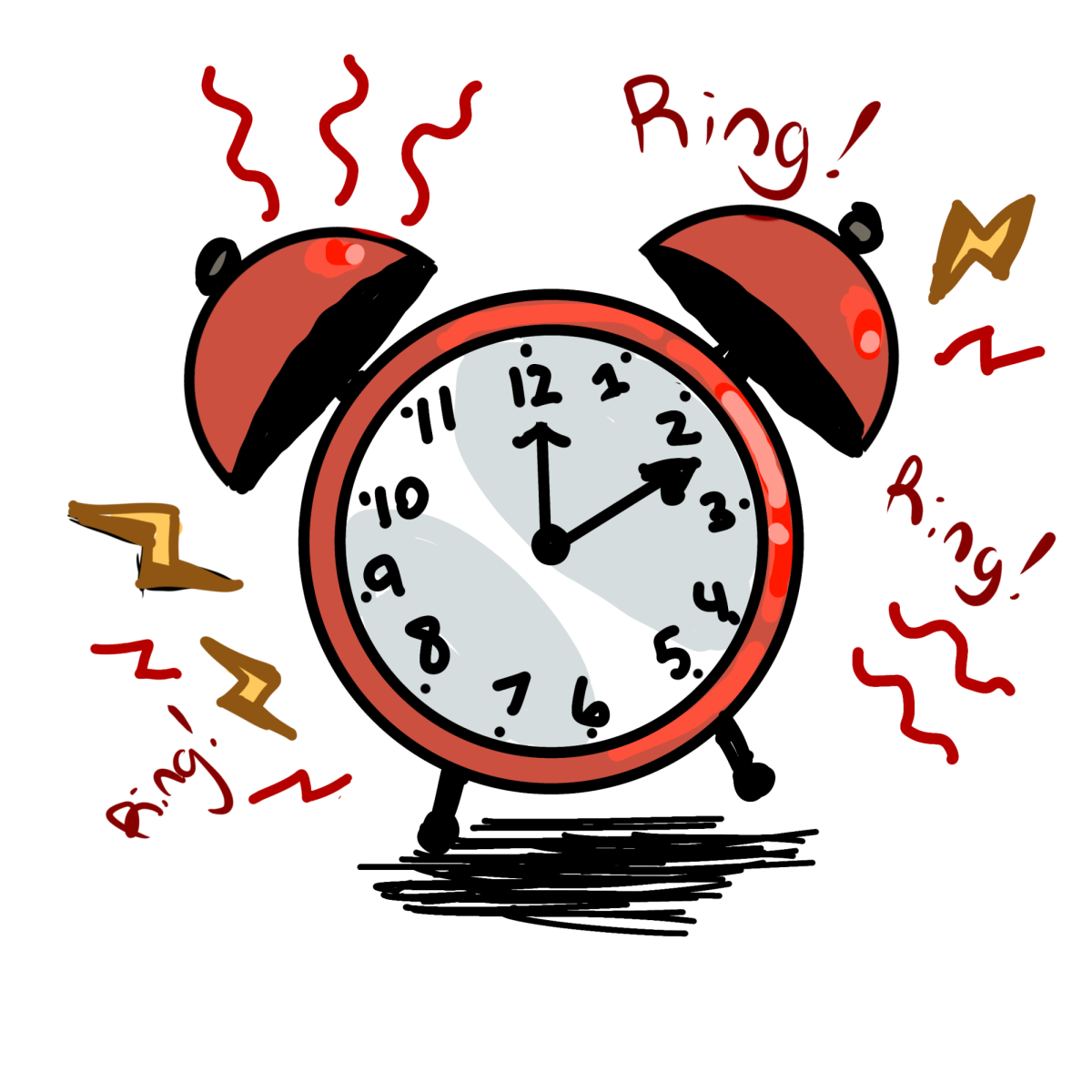





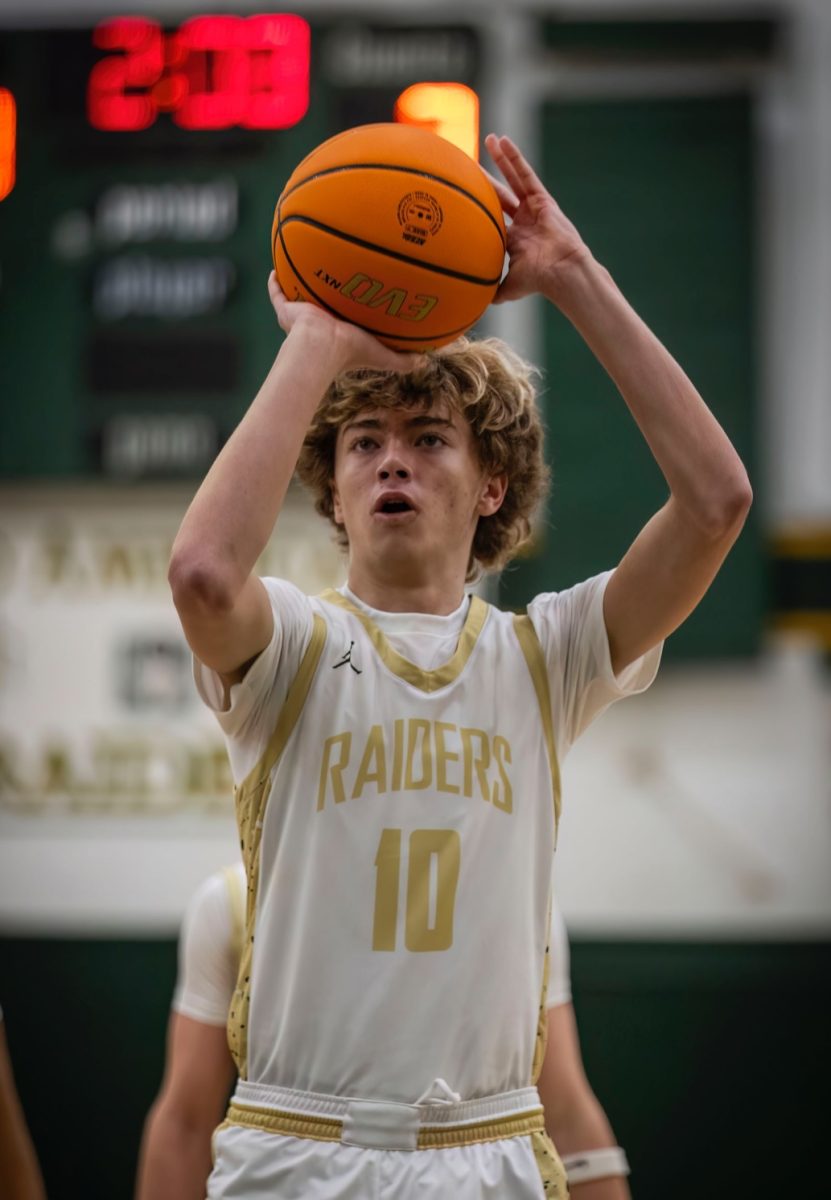


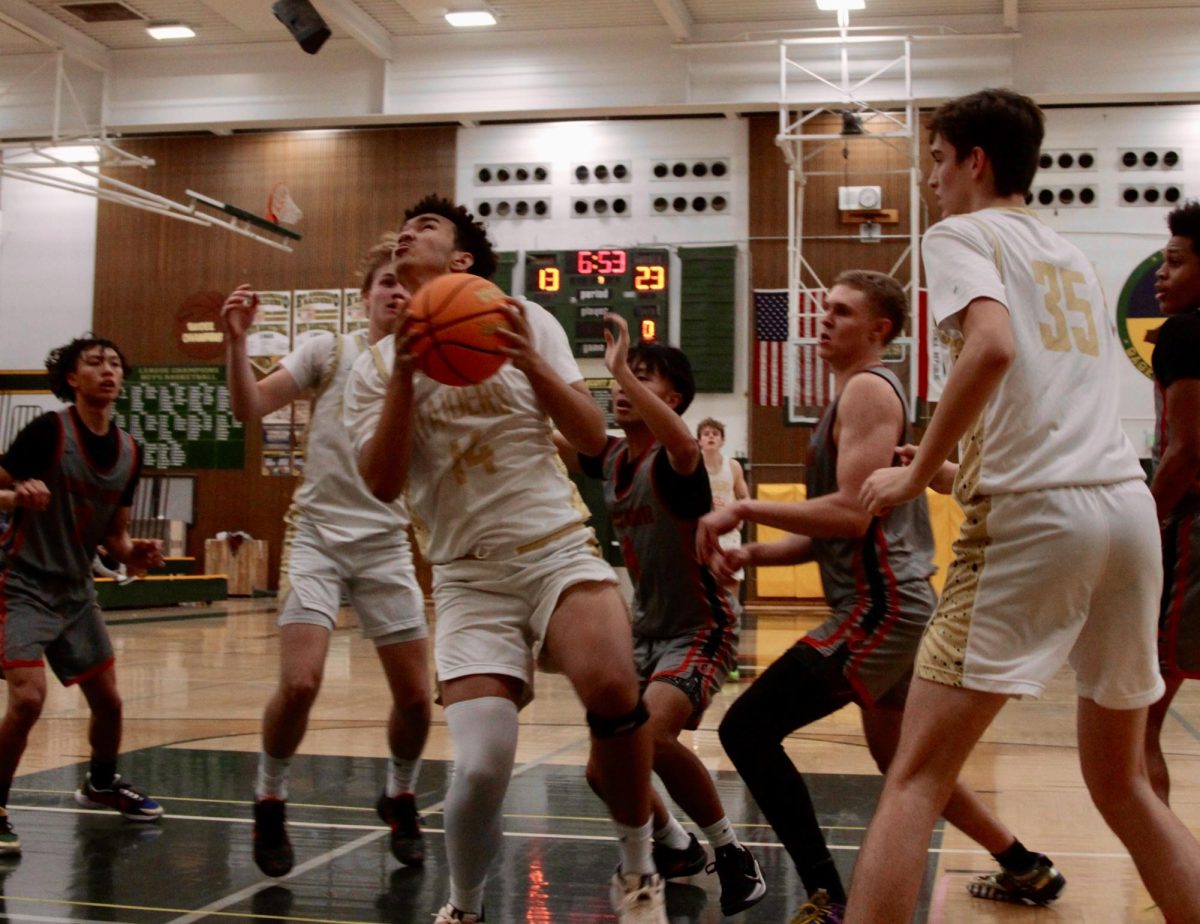









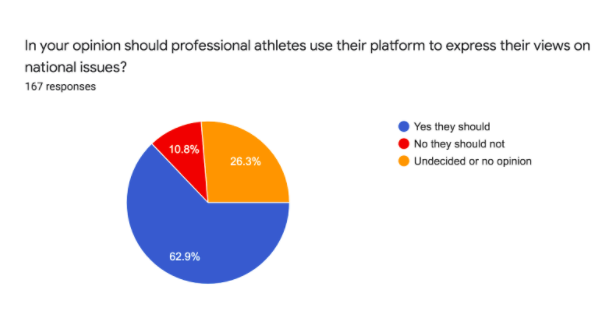


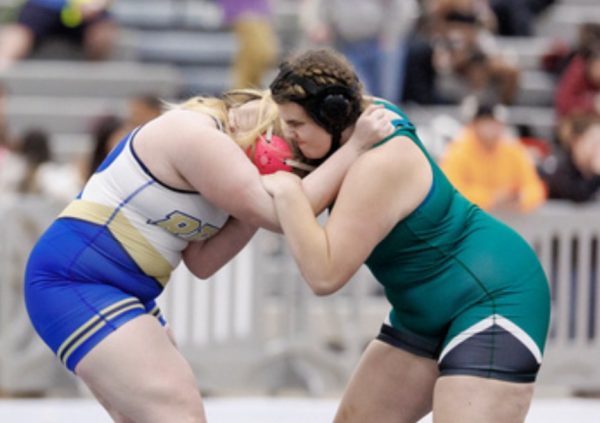
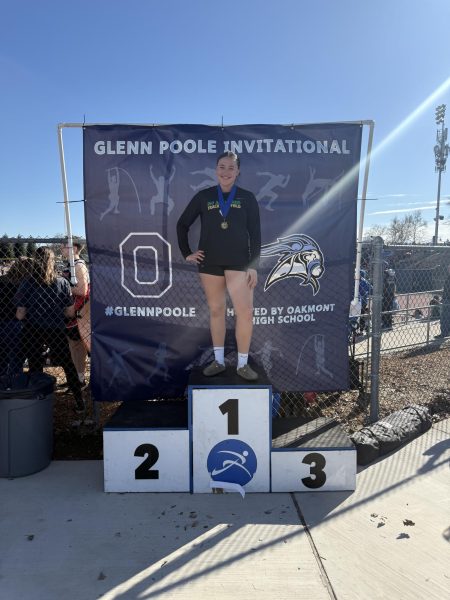
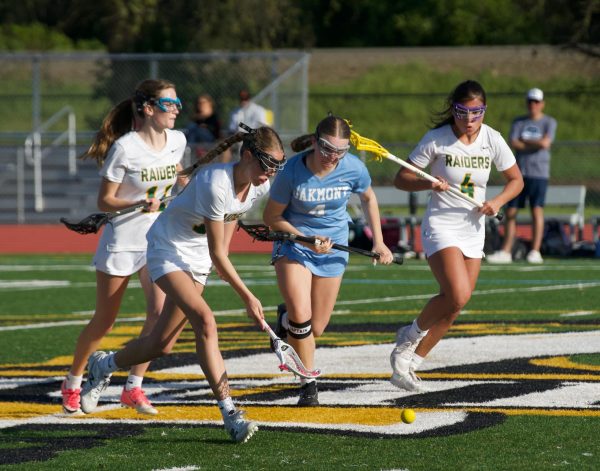

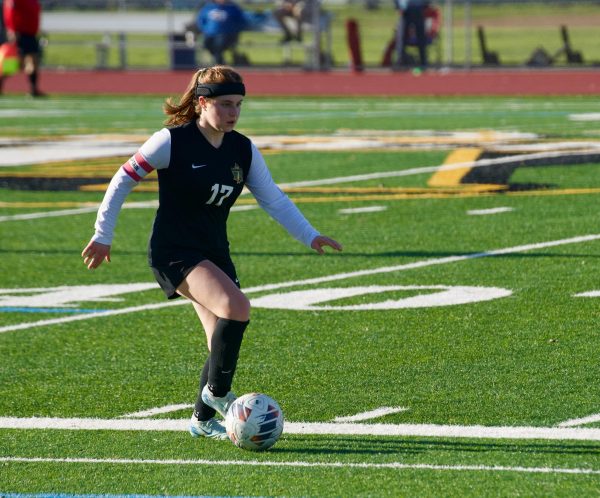
Natalia • Dec 6, 2020 at 3:26 PM
I thought this article was very interesting. I think athletes should express their views if they want to. Since they have a big platform, they can use it for good causes.
Mason Ready • Nov 1, 2020 at 10:41 AM
I enjoyed this article it brought up points that I didn’t even know happened. Like the 2016 Olympics which I watched and didn’t pick up on the subtle protest. I also didn’t realize that statistic that 40% of people don’t agree with pro athletes or celebrities protesting their opinion, while understandable a little shocking.